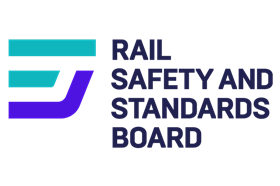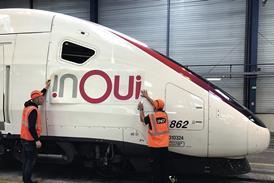
Organisation: RSSB
Location: London, United Kingdom
Overview
As a Principal Economist and Regulatory Specialist, you will lead the standards delivery workstream. You will provide regulatory and policy expertise related to railway standards, lead the development of economic impact assessments and business cases, and facilitate cross-industry consensus. You will also provide strategic direction to the team’s other two workstreams.
One of RSSB’s functions is to develop railway standards on behalf of the railway industry in Great Britain. Standards are an agreed way of doing something. They support the railway to function as a whole system, help manage risks, open markets, and reduce costs as the industry does not have to keep reinventing the wheel.
The Standards Management, Policy and Strategy team leads three workstreams to support the development of railway standards.
- The ‘standards management’ workstream looks after and implements the governance arrangements for developing standards and monitors compliance. It also develops, manages, and seeks continuous improvement in internal policies, processes, and procedures.
- The ‘standards delivery’ workstream leads on economic assessments and supports the development of business cases to change standards. It also provides technical expertise on regulatory policy to projects and cross-industry committees.
- The ‘policy and strategy’ workstream sets the strategic direction for the future development of standards. Its expertise in regulatory policy helps influence changes to legislation related to standards. It works closely with industry bodies like the Department for Transport (DfT) and the Office of Rail and Road (ORR).
Responsibilities
- Lead the strategic direction for business cases to create or change railway standards to ensure they remain appropriate and robust. Direct the adequacy and quality of the content of business cases, standards, and other documents and advise whether there is a case to take them forward.
- Actively engage with stakeholders from across the industry so RSSB’s outputs meet their needs, are of high quality, result in tangible benefits and are accepted by cross-industry groups and committees.
- Provide expert economic and regulatory advice to internal and external stakeholders.
- Lead the development of economic assessments, best practice models and methodologies, including cost-benefit analysis, to assess the value of railway standards and the cost to industry of implementing them. Also, provide this expert input to other directorates and the national research, development and innovation programme.
- Maintain familiarity with best practices in decision analysis techniques, methodology and applications, particularly those in use in transport, and identify opportunities for improved methodologies for application to rail standards and other RSSB work.
- Prepare and present economic and analytical concepts to non-technical audiences in a way that engages, informs, and drives decision-making.
- Support the delivery of RSSB’s commercial work programme.
- Lead the team in implementing the Rail Standards Strategy and delivering the RSSB’s Business Plan commitments to time, quality and budget.
- Provide direction, advice, and coaching to develop direct reports. Lead the development of competence across the Directorate in the knowledge, understanding, and application of economic and regulatory matters.
Qualifications
Essential:
- A minimum of a bachelor’s degree in a relavant field or equivalent experience.
- Analytical skills to assimilate complex and multiple sources of information and large, varied datasets to provide insights in the context of the railway system.
- Experience using rail industry and wider forecasting and appraisal guidelines (for example, TAG, PDFH, Green Book).
- Experience writing and reviewing technical documents, demonstrating attention to detail.
- Knowledge of, and ability to use, the Microsoft Office 365 suite.
- Understanding of the regulatory framework of standards that apply to the GB rail industry, particularly the interoperability and safety regimes.
- Build positive working relationships with colleagues from other disciplines across the business that help everyone achieve goals and business objectives whilst appreciating others’ motives and concerns.
- Able to prioritise, work efficiently and productively, and manage your own time, showing how you can decide what is important to focus on and how you go about meeting deadlines.
- Effective communication skills to share thoughts and ideas through methods appropriate to the audience, with experience in presenting complex technical subject areas at senior cross-industry groups and committees.
- Adapt and respond effectively when embracing new opportunities, change and in navigating uncertainty.
- Actively contribute as part of a team and work towards achieving team goals and outcomes.
- Take responsibility and demonstrate accountability in completing tasks and achieving objectives, actively seeking to resolve problems and identify opportunities.
- Committed to customer service and placing customer satisfaction at the heart of our success to ensure we deliver against our shared goals.
- Incorporate an inclusive leadership style, developing and retaining talent and constructively challenging habits and assumptions whilst remaining inclusive and ensuring everyone is heard.
- Act and make decisions based on a good understanding of the current and future needs of the organisation to perform to a high standard and focus on delivering outcomes.
- Positively communicates and delivers with impact and influence.
Desirable
- Some experience in rail modelling, such as economic appraisal, performance, crowding, cost, revenue, or wider economic benefits.
- Understanding of project management fundamentals and the ability to support project managers with the delivery of projects.














